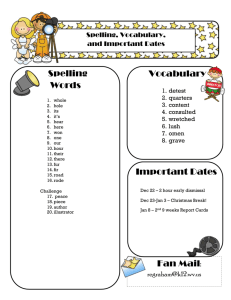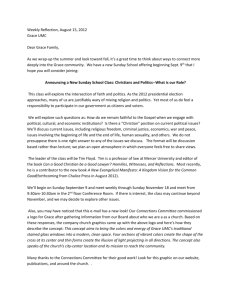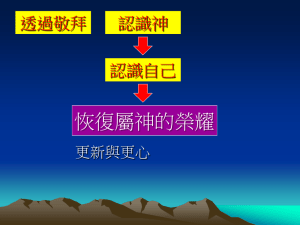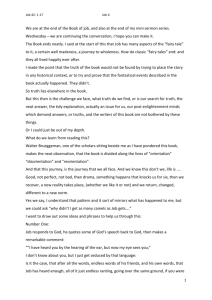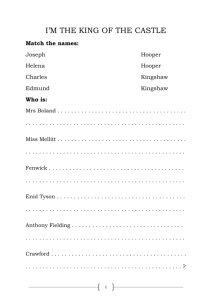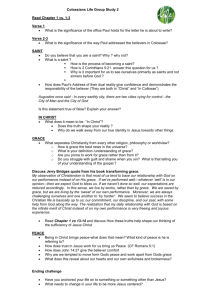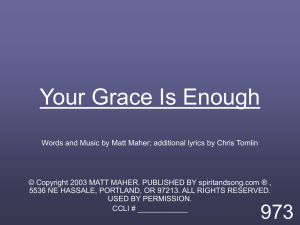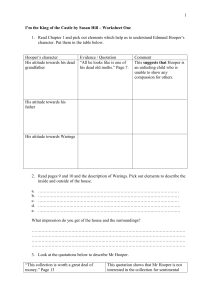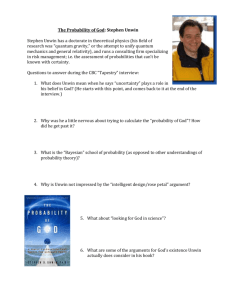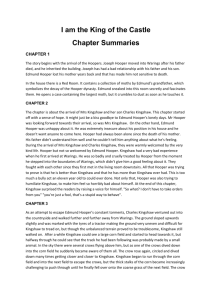In Detail This breakout novel—a page
advertisement
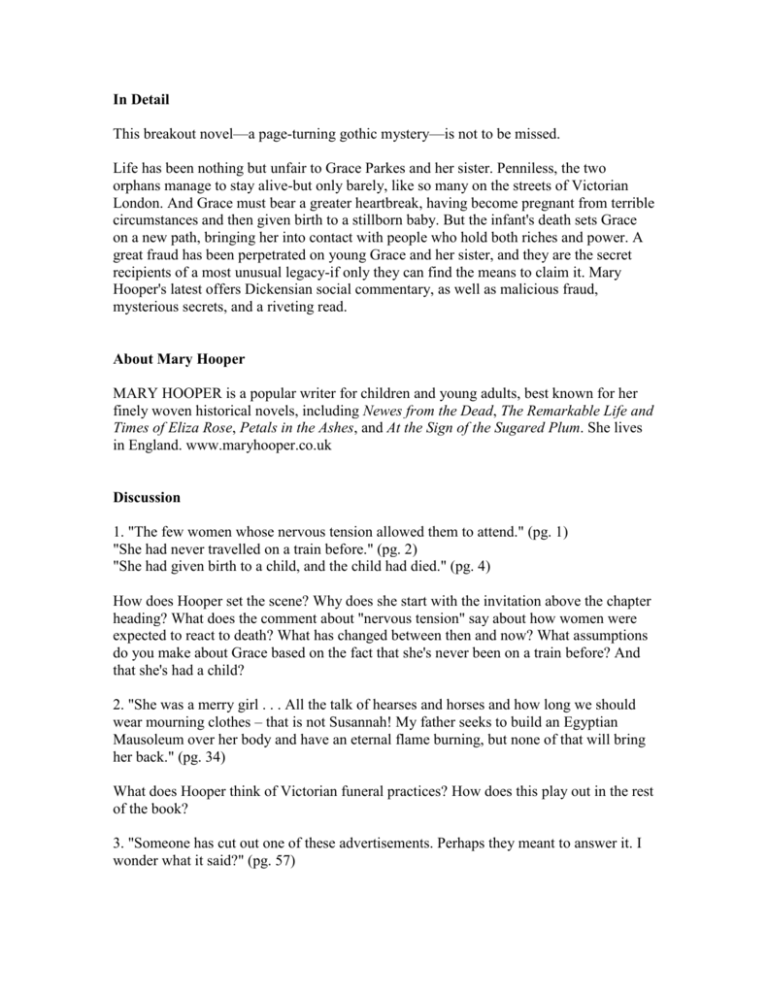
In Detail This breakout novel—a page-turning gothic mystery—is not to be missed. Life has been nothing but unfair to Grace Parkes and her sister. Penniless, the two orphans manage to stay alive-but only barely, like so many on the streets of Victorian London. And Grace must bear a greater heartbreak, having become pregnant from terrible circumstances and then given birth to a stillborn baby. But the infant's death sets Grace on a new path, bringing her into contact with people who hold both riches and power. A great fraud has been perpetrated on young Grace and her sister, and they are the secret recipients of a most unusual legacy-if only they can find the means to claim it. Mary Hooper's latest offers Dickensian social commentary, as well as malicious fraud, mysterious secrets, and a riveting read. About Mary Hooper MARY HOOPER is a popular writer for children and young adults, best known for her finely woven historical novels, including Newes from the Dead, The Remarkable Life and Times of Eliza Rose, Petals in the Ashes, and At the Sign of the Sugared Plum. She lives in England. www.maryhooper.co.uk Discussion 1. "The few women whose nervous tension allowed them to attend." (pg. 1) "She had never travelled on a train before." (pg. 2) "She had given birth to a child, and the child had died." (pg. 4) How does Hooper set the scene? Why does she start with the invitation above the chapter heading? What does the comment about "nervous tension" say about how women were expected to react to death? What has changed between then and now? What assumptions do you make about Grace based on the fact that she's never been on a train before? And that she's had a child? 2. "She was a merry girl . . . All the talk of hearses and horses and how long we should wear mourning clothes – that is not Susannah! My father seeks to build an Egyptian Mausoleum over her body and have an eternal flame burning, but none of that will bring her back." (pg. 34) What does Hooper think of Victorian funeral practices? How does this play out in the rest of the book? 3. "Someone has cut out one of these advertisements. Perhaps they meant to answer it. I wonder what it said?" (pg. 57) What did you think when you read this sentence? Can you find another sentence where Hooper drops in a clue but does not explain it? Where in chapters do these clues tend to occur? Why? 4. "They had paid considerably over the odds to secure their membership to the club, for being “trade” rather than “society”, by rights they shouldn't have been there at all." (pg. 58) These, we learn, are the Unwin brothers, our villains. Should the club have refused to make them members? If so, why? Is it because the club should not let in people who are trade, rather than society, however much money they have? Or for some other reason? 5. "Just the usual: several substitutions of painted chipboard for oak." (pg. 60) When did you realize that these were the Unwins, and they were talking about coffins? What is wrong with substituting chipboard for oak? Is it because Hooper thinks bodies should be buried in the best, most expensive coffins possible? Or is it because, whatever the rights and wrongs of expensive coffins, the Unwins are wrong to cheat people? Is Hooper's real point not about the coffins, but about the Unwins? 6. "That man might come for me again!" (pg. 64) When you learnt that both Lily and Grace were abused in the training house, did you think we would meet their abuser later in the story? Were you looking out for a onehanded man? What would you have felt if you didn't meet the abuser in the book? 7. "At Brookwood the woman had mentioned the sum of five shillings just to appear as a mute at one funeral." (pg. 108) Why didn't Grace take the five shillings earlier? Would you have done? 8. 'The weather was growing colder now, and crêpe, although the most fashionable fabric for both the bereaved and the funeral mute, was not comfortable to wear, for it didn't keep out the wind and, at the faintest hint of damp in the air, would attach itself clammily to one's limbs." (pg. 128) "The only thing to mar this stylish outfit was the fact that she had no elegant shoes." (pg. 268) Does Hooper have a message about fashion? Who dresses fashionably and why? Mrs Unwin is "fashionable". Sylvester Unwin takes enormous pride in his appearance (pg. 183). Is this a good thing? What is the difference between these mentions of fashion and Grace’s pleasure when she gets to wear nice dresses at the end? 9. "Only ten shillings! Well, as long as he kept them coming." (pg. 125) In the end, Mr. Unwin doesn’t keep them coming and Mrs. Beaman breaks his trust. Who is motivated by money in the book and who is not? Is it a reasonable motivation? Or is it sometimes reasonable and sometimes not? Or is it never reasonable? 10. "At midday the gravediggers stopped to eat their newspaper-wrapped hunks of bread and cheese and, with no one to consider, didn't hesitate to throw the paper, discarded rind and apple cores into the burial pit after." (pg. 131) Why is Grace shocked by this? Is it the contrast with posh funerals? But aren't they a waste of money? On pg. 134 Grace wonders whether it matters at all what coffin people are buried in, or if they are robbed. Is it her own personal story – the fact that her baby would have been buried in such a grave – that makes her think this? What do you think of what the gravediggers did? Does it matter? Why? 11. "One black-leather-clad hand." (pg. 136) "I was late – crept into the church and sat in the back pew." (pg. 160) "That smell; that acrid, sugary smell." (pg. 185) Did you realize what these sentences were hinting at? Were you surprised that Sylvester Unwin was the one-handed man? 12. "Sylvester Unwin screamed in terror, clutched his heart and fell to the floor, dead." (pg. 253) Is this justice? Did Grace mean to kill him? Do you like her more if she didn’t intend to? If she did intend to, would that have been all right? 13. "She said at the time that it seemed the right and proper thing to do." (pg. 291) Was it? Did "Mrs. Smith" give the baby a better start in life? Or would it have been better to leave the child with Grace? What would have happened to Grace under those circumstances? 14. Grace is beautiful. This is why she gets the card from Mrs. Unwin. Is it why she also gets the card from James Solent? Does her escape from poverty depend upon her beauty? 15. Grace is an heiress. This is also vital to her ultimate rescue. What would have happened to her if she was not an heiress? 16. At what point did you realize that the Robinsons' baby was Grace's? What gave you the clue? 17. “For the Lord's sake, are you just having this child as a prop to go a-begging with?” asked the midwife suddenly. (pg. 9) What do you think of this question? Is it unfair of the midwife? Do people make similar accusations about young single mothers today? What has changed and what is different? 18. "Lily turned away and trudged home, too traumatized to cry, while Mr. Morrell and Ernie the candle stub seller admired the Meissen teapot, safe on the secret shelf below the pawnbroker's counter." (pg. 29) What is the difference between this deception and the one practiced on Lily by the Unwins? Is it worse to trick someone who is mentally handicapped than someone who isn't? Further Reading Revolution by Jennifer Donnelly The Explosionist by Jenny Davidson At the House of the Magician by Mary Hooper Velvet by Mary Hooper The Double Life of Cassiel Roadnight by Jenny Valentine Montacute House by Lucy Jago


